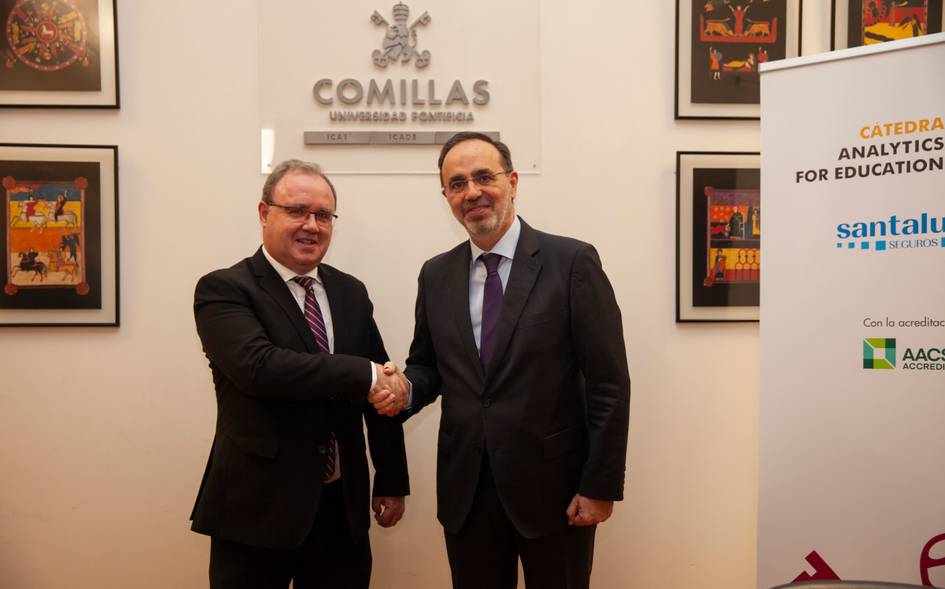A chair for the improvement of education through data
The Analytics for education Chair receives the support of Santalucía, and will contribute to improving university education, taking advantage of the opportunities offered by new technologies

22 February 2024
Comillas Pontifical University has just launched the new Santalucía Chair in Analytics for Education, which will be dedicated to promoting study, research and debate on the use of Analytics techniques to improve university education. This research chair, which is part of the Faculty of Economics and Business Studies (Comillas-ICADE), "has the mission of contributing to the improvement of university education, taking advantage of the opportunities offered by new technologies", as described by José Luis Arroyo, lecturer in Quantitative Methods at Comillas Pontifical University, and co-director of the new chair.
The creation of this chair has two main objectives: to strengthen the line of research on Analytics Applied to Education and Teaching Innovation -which is being developed by the Research Group on Educational Innovation and Analytics (GIIDA) at the university-, and to develop dissemination and training activities. "There is a growing interest in the integration of data analysis tools in university education, which is why research in this field has increased significantly in recent years. Analytics applied to higher education offers important opportunities to improve quality and effectiveness, as it enables informed decision-making, both at the pedagogical and management levels," says Carlos Álvarez, co-director of the Chair and lecturer in Quantitative Methods at Comillas ICADE.
"In the data lies the ability to personalise and adapt the experience to each person, in this case each student, which allows us to evolve and transform the way in which we teach and learn, always seeking improvement and excellence", according to Andrés Romero, Managing Director of Santalucía. According to the co-directors of the chair, Analytics techniques, always from an ethical and responsible use, open the door to significant improvements in higher education.
The study of this information makes it possible to improve teaching methods and, as a consequence, academic performance. "To give some examples, it is possible to talk about predictive models of academic performance to identify students who may need additional support or algorithms for analysing study strategies to correct problematic situations, such as those that frequently occur in STEM subjects in non-STEM degrees", say the chair.
You may also be interested in

Se celebra en Comillas el 8º Foro Mesías sobre ciberespionaje

Comillas acogió un encuentro con destacados antiguos alumnos de universidades y colegios de la Compañía de Jesús

Comillas presenta sus novedades en la XXXII edición de AULA
